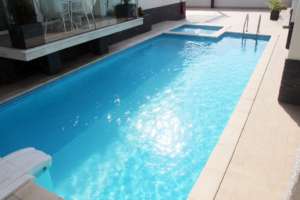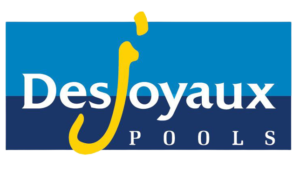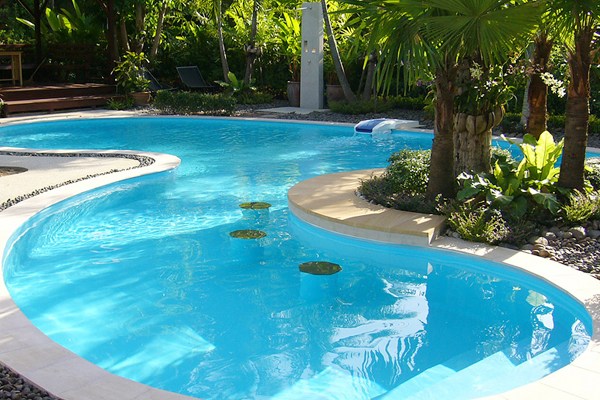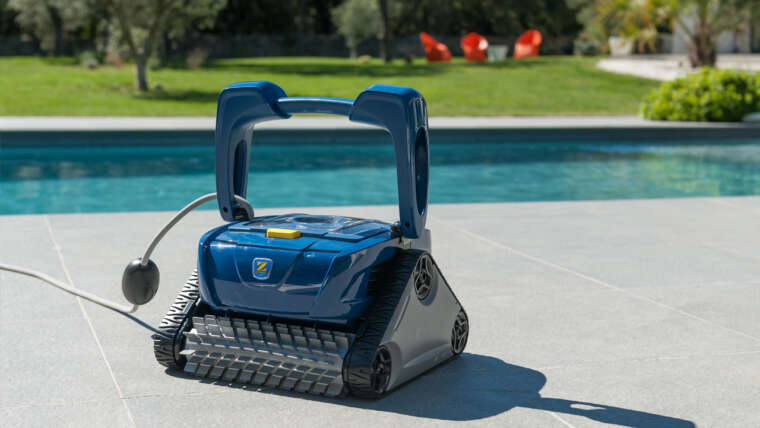In this guide, we will delve into the essentials of swimming pool construction in Ghana, with a focus on Desjoyaux Pools and its patented pipe-less filtration system, shedding light on their innovative offerings
Before you start your swimming pool construction project, there are some important things you need to know and consider:
– The benefits of having a swimming pool
– The types of swimming pools and how to choose one
– The costs and financing options for swimming pool construction
– The steps and timeline of swimming pool construction
– The permits and regulations for swimming pool construction
– The maintenance and safety tips for swimming pool owners
– The best swimming pool construction company in Ghana

The Benefits of Having a Swimming Pool
Ghana has a predominantly tropical climate and that presents an awesome destination to have a swimming pool. Having a swimming pool can offer you many benefits, such as:
- Improving your physical and mental health by swimming regularly, which can help you burn calories, tone muscles, reduce stress, and improve mood.
- Enhancing your outdoor living space by adding beauty, value, and functionality to your backyard.
- Creating a fun and relaxing environment for your family and friends by hosting pool parties, barbecues, or simply enjoying quality time together.
- Saving money and time by avoiding crowded public pools or travelling to resorts or beaches.
The Types of Swimming Pools and How to Choose One
There are many types of swimming pools available in the market, each with its own advantages and disadvantages. Some of the most common types are:
- Above-ground pools: These are pools that are installed on top of the ground, usually made of metal, plastic, or vinyl. They are the cheapest and easiest to install, but they are also less durable, less attractive, and less customizable than other types of pools.
- In-ground pools: These are pools that are built into the ground, usually made of concrete, fibreglass, or vinyl. They are the most expensive and difficult to install, but they are also more durable, more attractive, and more customizable than other types of pools.
- Infinity pools: These are pools that have one or more edges that appear to merge with the horizon or the surrounding landscape. They are very elegant and luxurious, but they are also very costly and complex to build and maintain.
- Lap pools: These are pools that are long and narrow, designed for swimming laps or exercising. They are ideal for small or narrow spaces, but they are not very suitable for leisure or entertainment purposes.
- Natural pools: These are pools that use natural filtration systems such as plants, gravel, or sand instead of chemicals or mechanical devices. They are eco-friendly and low-maintenance, but they also require more space and may attract insects or wildlife.

To choose the right type of pool for your home, you need to consider several factors, such as:
- Your budget: How much can you afford to spend on your pool project? This will determine the size, shape, material, and features of your pool.
- Your space: How much space do you have in your backyard? This will determine the location, orientation, and design of your pool.
- Your purpose: What do you want to use your pool for? This will determine the depth, temperature, lighting, and accessories of your pool.
- Your style: What kind of look do you want for your pool? This will determine the colour, texture, finish, and landscaping of your pool.
The Costs and Financing Options for Swimming Pool Construction
The cost of building a swimming pool depends on many factors, such as:
- The type of pool: Above-ground pools are generally less expensive than in-ground pools. Concrete pools are generally more expensive than fibreglass or vinyl pools. Infinity pools are generally more expensive than regular pools.
- The size of pool: Larger pools require more materials, labour, and equipment than smaller pools.
- The shape of pool: Custom or complex shapes require more engineering and craftsmanship than standard or simple shapes.
- The features of pool: Additional features such as waterfalls, jets, slides, heaters, covers, or automation systems increase the cost of the pool.
- The location of pool: The site conditions such as soil type, slope, access, drainage, utilities, and climate affect the cost of the pool.
- The contractor of pool: The experience, reputation, quality, and warranty of the contractor affect the cost of the pool.
According to Desjoyaux Pools Ltd, the average cost of installing a domestic swimming pool in Ghana ranges from GHC180,000 to GHC300,000, depending on the type, size, shape, and features of the pool. However, this does not include the ongoing costs of operating and maintaining the pool, such as electricity, water, chemicals, cleaning, repairs, and insurance.
To finance your swimming pool construction project, it is recommended that you save up for it. This is the best option if you can afford to pay for your pool in cash, as you will avoid paying interest or fees for borrowed money.
The Steps and Timeline of Swimming Pool Construction
The process of building a swimming pool involves several steps, such as:
- Designing: This is the first step where you work with a pool designer or contractor to plan the layout, style, and features of your pool. This may take a few days or weeks, depending on the complexity of your project.
- Permitting: This is the second step where you obtain the necessary permits and approvals from the local authorities to build your pool. This may take a few days or weeks, depending on the regulations and requirements of your area.
In Ghana, the government department responsible for issuing permits for building construction, including swimming pools, is the Metropolitan, Municipal, and District Assemblies (MMDAs). These local government bodies have the authority to regulate and oversee construction activities within their respective jurisdictions.
To obtain a permit for swimming pool construction in Ghana, you would typically need to approach the Building and Planning Department or a similar department within the relevant MMDA at your location. The specific process and requirements may vary slightly depending on the location and the particular regulations of the MMDA.
It is advisable to contact the appropriate MMDA or consult with a local architect, engineer, or construction professional familiar with the local regulations to ensure compliance with all necessary permits and building codes for swimming pool construction in Ghana.
- Excavating: This is the third step where you dig out the hole for your pool using heavy machinery. This may take a few hours or days, depending on the size and depth of your pool.
- Framing: This is the fourth step where you install the steel or wooden framework (civil works) that supports the structure of your pool. This may take a few hours or days, depending on the material and shape of your pool.
- Plumbing or Pipeless Filtration? You have the option of a full plumbing system with underground pipes or the Desjoyaux Pools patented pipe-less filtration. But we would recommend the latter. If you are looking for a cost-effective rapid installation, anti-leak reliability, effective filtration and water savings, then look no further. Desjoyaux’s patented pool structure and filtration concept has all the answers.
- Electrical: This is the sixth step where you install the wires and outlets that power your pool’s lighting and automation systems. This may take a few hours or days, depending on the type and features of your pool.
- Finishing: This is the seventh step where you apply the final layer of material that forms the surface of your pool. This may be concrete, fibreglass, or vinyl, depending on the type of your pool. This may take a few days or weeks, depending on the material and curing time of your pool.
- Filling: This is the eighth step where you fill your pool with water using a hose or a water tanker or through your pool’s inlet channel. This may take a few hours or days, depending on the size and source of water for your pool.
- Testing: This is the ninth step where you test your pool’s systems and equipment to ensure they are working correctly. This may take a few hours or days, depending on the type and features of your pool.
- Landscaping (optional): This is the tenth step where you add plants, furniture, and accessories to enhance the appearance and functionality of your pool area. This may take weeks, depending on the design and budget of your project.
The timeline of building a swimming pool varies depending on many factors, such as:
- The type of pool: Above-ground pools are generally faster to install than in-ground pools. Concrete pools are generally slower to install than fiberglass or vinyl pools.
- The size of pool: Larger pools require more time to excavate, frame, plumb, electrify, finish, and fill than smaller pools.
- The shape of pool: Custom or complex shapes require more time to design, permit, frame, and finish than standard or simple shapes.
- The features of pool: Additional features such as waterfalls, jets, slides, heaters, covers, or automation systems require more time to install and test than basic features.
- The location of pool: The site conditions such as soil type, slope, access, drainage, utilities, and climate affect the time required to build the pool.
- The contractor of pool: The availability, experience, reputation, quality, and warranty of the contractor affect the time required to build the pool.
Desjoyaux Pools is a subsidiary of Regimanuel Gray Ltd, a real estate developer with footprints in Ghana and other African countries.





